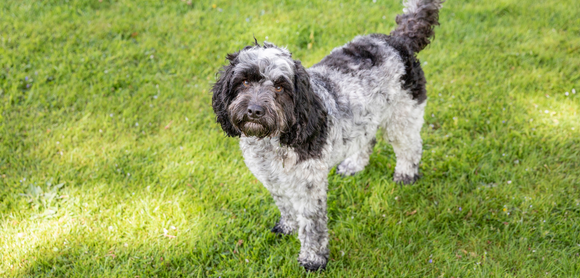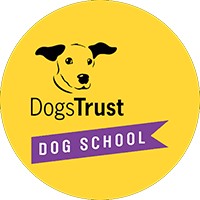How to toilet train a puppy
There are a few steps to potty training your dog, but you might find you stay longer at one stage than others, or you might go back a few steps if your puppy regresses. This is totally normal, and you shouldn’t worry if your puppy is taking a while to grasp toilet training.
Keep this step-by-step guide to hand for easy house training:
Step 1: Find a suitable area for your puppy to go to the toilet.
This should be somewhere with no distractions and where they feel safe. It should be an area away from where your puppy eats or sleeps.
Step 2: Take them to their designated spot at the right times
Let your pup out to the same spot in your garden after they wake up, eat, drink, play, or whenever they get excited.
Step 3: Recognise the signs
As you are supervising your new furry friend, you’ll notice the signs your puppy shows when they want to pee or poop. Signs include going to the door, squatting on the floor, sniffing the floor, or beginning to turn in circles. If you see these behaviours, immediately and calmly encourage your puppy to go outside.
Step 4: Take them outside and reward them when they get it right
Giving praise and rewards are very important when training your puppy, but with potty training, the timing is incredibly important. If you are with your puppy when they are toileting, stand calmly and quietly so you don’t distract them. Only after they have finished should you reward them with a treat, and give calm, positive praise.
What age should a puppy be potty trained?
All puppies need patient and consistent house training. It’s very normal for a puppy to take a few months to be completely housetrained without the odd accident, so don’t worry if it seems to be taking a while!
It’s important to remember that puppies can only hold their bladder or bowels for a short time. This includes through the night, so you’re going to have to wake up to allow your pooch the opportunity to go to the bathroom. By the time your puppy is 8 months old they should be able to hold it through the night, if their potty training is on track.
Puppies aren’t allowed outside for walks, or to interact with other dogs, until two weeks after their last vaccination. So, it’ll take a while for them to associate walk time with bathroom time. It’s a lot for a little puppy to process! Remember to approach everything with patience as they learn.
Remember, even a dog who has previously been toilet trained may slip up or forget, especially during times of change, such as a house move or a new adoption. Don’t worry, there’s lots you can do to support your puppy, or older dog, and help them to get it right.
Should you use puppy pads for toilet training?
Puppy pads might sound like a good idea, but they’re generally not the best way to go about house training your dog. As well as being expensive they can also encourage your puppy to toilet inside. This means you’ll end up adding another step to your housetraining further down the line when you do want to move outside.
How to deal with accidents when potty training your puppy?
It’s extremely likely your puppy is going to have accidents during toilet training. The most important thing is to avoid telling your dog off or punishing them in any way. This will create negativity between you and your dog, and they’ll become worried about toileting in front of you. After all, peeing and pooping is natural.
If your puppy or dog has an accident in the house, clean the area with an enzymatic cleaner. This breaks down the smells of the accident. Your puppy has a strong sense of smell, and if the area isn’t cleaned thoroughly, they might try and toilet in the same area again.


